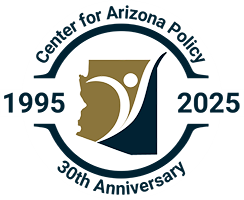Guest column by Allison Gentala, homeschool mother and CAP board member
Parents are the best people to direct the upbringing and education of their children. Our legal traditions and system clearly reflect this. The Supreme Court of the United States has recognized that the Constitution protects the rights of parents to control the education and upbringing of their children in cases like Pierce v. Society of Sisters and again in Wisconsin v. Yoder. Here in Arizona, the “Parents’ Bill of Rights” in section 1-602, of the Arizona Revised Statutes, affirms a parent’s right to “direct the education of the minor child.” Even in the limited circumstances when the State does need to step in, it does so temporarily, with the clearly stated goal of family reunification whenever possible.
The common foundation here is that we, as a people and culture, trust parents over governments to love and nurture children–and with good reason. As a parent and former classroom teacher, I know that parents have unique insight into their children’s needs. They have the distinctive role of walking through each year of their children’s lives. And parents are the ones most passionate about the
long-term success of their children.
However, a Harvard Law professor and director of Harvard’s Child Advocacy Program would rather parents’ educational decisions be subject to approval from the government. Elizabeth Bartholet, quoted in Harvard Magazine, asserted that homeschool “not only violates children’s right to a ‘meaningful education’ and their right to be protected from potential child abuse, but may keep them from contributing positively to a Democratic Society.”
Professor Bartholet clearly has very specific views about what constitutes a “meaningful education” or a positive contribution to society. But let’s take a look at what we do know about home-based, parent-led education. According to the National Home Education Research Institute:
- Students who are “home-educated typically score 15 to 30 percentile points above public-school students on standardized academic achievement tests.”
- The rate of abuse of homeschooled children is far below the rate of abuse in any other educational option.
- Homeschool students on average are far more likely to engage in community and government.
Bartholet’s unsubstantiated claims about homeschool are based on her faulty premise that governments know what is best for children. Here are some of her claims.
- Parents are presumed to be potential abusers and government schools protect children from their parents
- Home education equals a removal from our democratic society at large
- Only attendance at a government approved school ensures a quality education
- Removal from public school to avoid bullying or pursue competitive sports seems acceptable, but faith-based considerations are inherently suspect
- Parental rights keep states from protecting children
- Parents must prove themselves before being allowed to homeschool their children
The shocking opinions Bartholet holds are directly expressed in her Arizona Law Review article entitled Homeschooling: Parent Rights Absolutism vs. Child Rights to Education and Protection. Here she claims that homeschooling produces a substandard education and bemoans parents’ passing their belief system to their children. She purports to desire that all children be exposed to community values but by the end of the Harvard article it becomes obvious that what she truly wants is for children to be exposed to her values, using state-controlled education to compel compliance with the political ideology of the left.
Bartholet’s activism goes even deeper. Harvard’s Child Advocacy Program, of which Bartholet is the director, is planning to host a two day, invite-only conference entitled, “Homeschooling Summit: Problems, Politics, and Prospects for Reform.” Will experts who hold contradictory viewpoints on homeschooling be invited to discuss these “Problems, Politics, and Prospects”? Not likely.
Bartholet claims that state departments of education around the nation are failing to enforce their state homeschool regulations and yet she would have those same departments overseeing the education of all children. It seems the nanny state isn’t actually a very good nanny.
As to child abuse, Bartholet’s proposed remedy is clearly misdirected. Almost 70% of abuse cases, according to a 2017 report from the Department of Health and Human Services, occur before a child turns five. One has only to turn on the evening news or do a quick google search to see a multitude of cases of abuse happening in the public school system.
I’ve been in the homeschool community for thirty-five years, first as a homeschool student in the 1980s and now as a seasoned homeschool mom of 13 years. It’s rare to find a homeschool family not engaged with their neighbors, community, and government. Often these families are moved to involvement and service by the very faith that Bartholet sees as a threat to their development as citizens.
Professor Bartholet has tremendous faith in the government and its ability to provide a strong education, and very little faith in parents and families. If her views gain purchase, parents will lose a dynamic and flexible tool to give their children a customized education–and children will be left with a one-size-fits-all education. State-sponsored educational options have their place, but the logic of Bartholet’s position leads inevitably to state-controlled education crowding out other options. That is not diversity. That is not pluralism. It makes one wonder about the pending gathering in Cambridge to plan a new era of tolerance for American children; and whether–if Professor Bartholet and her colleagues have their way–there would be anything tolerant about it at all.
For more information on homeschooling, visit afhe.org.
ICYMI –
- Al Mohler has another compelling take on the Harvard professor’s criticism of homeschooling.
- Read John Stonestreet’s take on the homeschool attack in the Colson Center’s Breakpoint.
- Goldwater Institute writes about the vindication of Arizona ESA families in its In Defense of Liberty blog.
Stay connected and consider receiving additional publications by joining the CAP Network.


